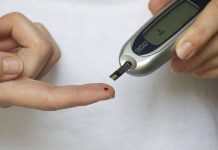Menopause can be a difficult experience. Even with the benefit of modern medicine, the symptoms, such as hot flashes and irritability, are often harsh.
Now, scientists believe there may be a link between menopause and alzheimer’s disease. Here is what you should know about this new development.
Is There A Link Between Menopause and Alzheimer’s Disease?

It is no secret that women have an increased risk of neurodegenerative diseases. Scientists and medical professionals have known for years that women are more likely to develop Alzheimer’s disease than their male counterparts. Initially, it was believed that this was due to the fact that women, in general, have a longer lifespan than men.
“New studies show that there is a link between menopause and Alzheimer’s disease.”
Based on new information about Alzheimer’s, however, this reasoning is no longer sufficient. On average, women only live a few years longer than men. Yet, this disease usually begins decades before an actual diagnosis is made. For this reason, and others, many people within the medical and science communities have called for a deeper look.
According to Maria Carrillo, Chief Science Officer for the Alzheimer’s Association, “There are enough biological questions pointing to increased risk in women that we need to delve into that and find out why. There is a lot that is not understood and not known. It’s time we did something about it” (https://www.alzheimers.net/8-12-15-why-is-alzheimers-more-likely-in-women/).
New studies show that there is a link between menopause and Alzheimer’s disease. While there is much more research to be completed, this information does appear to fall in line with current knowledge.
What Are The Triggers For Dementia
The female body goes through several changes during this time. So, the question is what is it about this condition that triggers Alzheimer’s or dementia? According to this new study, the loss of estrogen that is associated with this medical condition is a major trigger.
“new study indicates that estrogen is important for protecting the female brain against aging and promoting healthy activity.”

We already know that low estrogen levels contribute to hot flashes and increased risk of bone fractures. However, this may only be the beginning. Dr. Lisa Mosconi says, “Our findings show that the loss of estrogen in menopause doesn’t just diminish fertility. It also means the loss of a key neuroprotective element in the female brain and a higher vulnerability to brain aging and Alzheimer’s disease” (https://www.medicalnewstoday.com/articles/319721.php). A drop in estrogen levels significantly affects the brain, which leads to cognitive issues.
This new study indicates that estrogen is important for protecting the female brain against aging and promoting healthy activity. A decrease in estrogen also appears to age the female brain faster than men. So, while women have a generally live longer, their brain is much more vulnerable, or susceptible, to neurodegenerative diseases.
If this new research proves to be true, then hundreds of millions of women are at risk worldwide. It means women in their 40’s and 50’s will have even more reasons to be proactive about their health.
The Importance of Maintaining A Healthy Lifestyle During Your Menopausal Years
“If you are approaching your menopausal years or believe you have an increased risk of developing Alzheimer’s, be sure to speak with your doctor.”
Although it will not prevent either disease, leading a healthy, active lifestyle can reduce the symptoms and progression of these conditions. For example, weight gain and mood swings are common characteristics. However, regular exercise can help to combat both. Physical activity releases endorphins, which provide an overall sense of well-being. Exercise may also reduce the risk of dementia and alzheimer’s (https://www.mayoclinic.org/diseases-conditions/alzheimers-disease/expert-answers/alzheimers-disease/faq-20057881).

A healthy diet is equally important. During menopausal years, estrogen levels and bone density decline. Making changes to your diet can counter some of this loss, relieve symptoms, and possibly improve brain function. Start by replacing greasy or unhealthy foods with healthy fats, such as fish, nuts, and chia seeds.
You should also add more dairy and leafy greens to your diet. Not only will these changes help manage your weight and protect cognitive function, they could also protect your heart. Post menopausal women have a significantly higher risk of developing heart disease.
As with any other medical conditions, the best way to manage your risk is to learn as much as possible. If you are approaching your menopausal years or believe you have an increased risk of developing Alzheimer’s, be sure to speak with your doctor. A trusted medical professional can help you identify your individual risks and work with you to develop a strategic plan for early prevention.
Sources & References:
https://www.medicalnewstoday.com/articles/319721.php
https://www.alzheimers.net/8-12-15-why-is-alzheimers-more-likely-in-women/





















